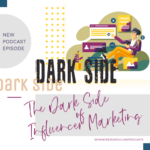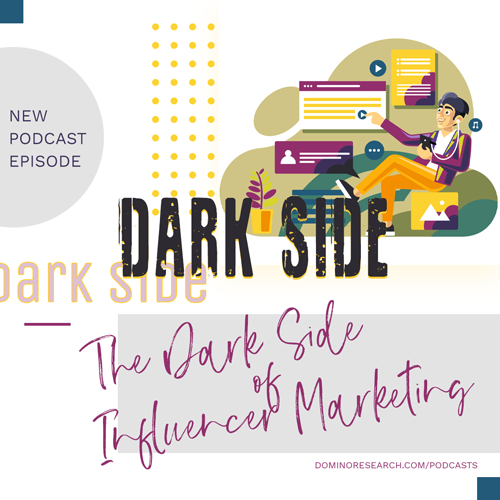
Influencer marketing is today’s topic and we have a lot to say!
If you’re not familiar with how influencer marketing works or how it can go so wrong – both financially and from a reputation standpoint, then you definitely need to stop what you are doing RIGHT NOW, and listen to the first new episode of this decade for us!
[LISTEN: Our favorite podcasts for event planners – PODCAST EPISODE]
We are talking about how SMBs set out to use influencer marketing with the best of intentions, only to find that sometimes that’s not really the way the story ends. Whether it’s a deliberate fraudster going to jail over a Bahamian music festival gone awry, or the FTC coming calling to find out why posts and tweets haven’t been properly disclosed, if you’re considering using social media influencers – or if you already do – for part or most of your marketing and advertising efforts, there are things you need to know.
It’s not like this is the first time.
Over the past several years, the FTC has released numerous guidelines for affiliates – those who market products and services for others in exchange for money after the transaction occurs. But in the case of influencer marketing, there does not have to be a consumer facing transaction – the post itself constitutes the exchange of money for an action.
Influencer marketing can be a very powerful part of nearly any campaign, but there are red flags and warning signs, as well as basic research that you or your marketing team need to be aware of before you start signing contracts and making deals for posts or tweets or similar services.
We’re talking about a few checks you need to run before you contract with any influencer, as well as giving up some telltales you should be on the eye out for when trying to make sense of your engagement and reach results.
As always, you can talk to us about the episode dropping us an email, and if you’re interested in being interviewed in the upcoming year, let’s talk about that as well. We are going to be adding a few things and changing some others in the coming weeks, and we are delighted to talk about nearly anything relevant!
Influencer Marketing: A Double-Edged Sword for Brand Growth
Influencer marketing has become a dominant force in the digital age. It leverages the power of social media personalities with established followings to promote brands and products. While it offers exciting possibilities for brand growth, it also comes with inherent challenges. Let’s explore the pros and cons for businesses considering influencer marketing as a growth strategy.
Pros:
- Targeted Reach and Engagement: Influencers have built trust and credibility with their audience. Partnering with the right influencer allows brands to tap into a highly engaged niche market, reaching people already receptive to the brand’s message. Influencer recommendations can feel more authentic than traditional advertising, potentially leading to higher conversion rates.
- Enhanced Brand Awareness: Influencers can significantly boost brand visibility, especially among younger demographics who actively follow them. By creating engaging content featuring the brand, influencers can introduce it to a wider audience and generate excitement.
- Content Creation and Storytelling: Many influencers are skilled content creators. Partnering with them allows brands to leverage their creativity to develop engaging content that resonates with the target audience. This can be a cost-effective way to produce high-quality marketing materials.
- Building Brand Trust and Credibility: Consumers often trust influencer recommendations more than traditional advertising. A positive review from a trusted influencer can significantly boost brand credibility and encourage purchase decisions.
Cons:
- Finding the Right Fit: A crucial challenge lies in selecting the right influencer. A mismatch between the influencer’s audience and the brand can lead to wasted resources and a negative brand image. Careful research and analysis are needed to ensure alignment between the influencer’s values, content, and the target audience.
- Cost and Transparency: Influencer marketing can be expensive, depending on the influencer’s reach and engagement. Transparency is also crucial – paid partnerships should be clearly disclosed to avoid misleading consumers.
- Limited Control and Measurement: Brands have limited control over the influencer’s message or content creation process. Measuring the true ROI of influencer marketing campaigns can be challenging, as engagement metrics don’t always translate directly to sales.
- Risk of Negative Publicity: Influencers can be unpredictable. If an influencer is involved in a scandal or controversy, it can damage the brand’s reputation by association. Carefully vetting potential partners and establishing clear campaign guidelines is essential.
Influencer marketing can be a powerful tool for brand growth, but it’s not without risks. Brands need to weigh the pros and cons carefully, invest in selecting the right partners, and establish clear expectations to ensure a successful campaign. By navigating these challenges, influencer marketing can be a valuable strategy for reaching new audiences, building brand loyalty, and ultimately achieving sustainable growth.

